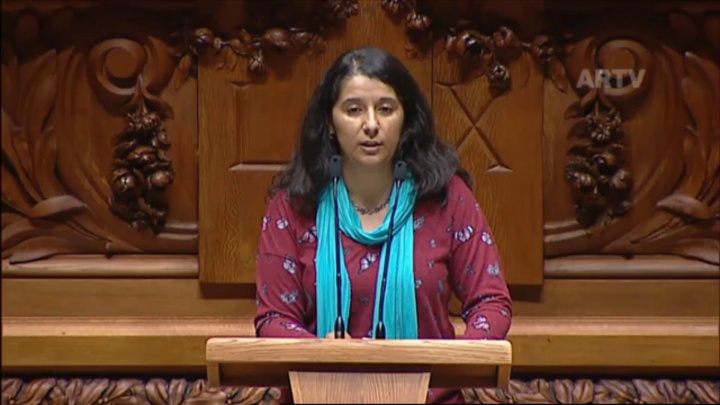Vaccines are a public good and should be at the service of Humanity
These are the tenets that should guide the government's decision and intervention, to give priority to life and not to the profits of the pharmaceutical multinationals.
Through the PCP’s initiative, the Assembly of the Republic is today debating a set of solutions that, if adopted and implemented, will allow the country to speed up vaccination, protect the health of citizens and enable a return to normal economic, social, cultural and sports activities, giving life back to the entire population.
The PCP's proposal is based on three essential axes: diversify the purchase of vaccines, create vaccine production capacity in Portugal, and suspend patents as a way of ensuring the vaccination of the Portuguese.
First, the PCP proposes that, within the framework of its sovereign option, the government should initiate efforts to diversify the purchase of vaccines from countries and/or pharmaceutical companies that have developed vaccines against Covid 19, recognised by the World Health Organization, and that the procedure for placing them in the market be set down by Infarmed, the National Authority of Medicines and Health Products. INFARMED
Due to the successive delays and non-compliances in the supply of previously contracted vaccines, the country received two million less vaccines in the first quarter and, in the second quarter, of the 11.2 million vaccines initially contracted, only about 9 million vaccines should arrive, and this if there are not more non-compliances.
Data up to April 4 reveal that only 13% of the Portuguese population has the first dose of the vaccine and 6% has full vaccination. The lack of vaccines is an obstacle in the implementation of the vaccination plan, namely in the protection of groups at risk and in the protection of workers in essential areas, leading to the discussion of priorities within vaccination priorities when what is really needed is that vaccination should go ahead in a generalised way.
Instead of worrying about finding solutions to acquire the necessary doses to vaccinate the population as fast as possible, the Portuguese government has justified its inaction with the idea of “not betraying the European Union”. Meanwhile, there are countries in the European Union that have already purchased or are preparing to purchase vaccines outside the agreements of the European Commission.
Second, the PCP proposes that the government safeguard our sovereignty and reduce external dependence, making the necessary investment for the production of vaccines in Portugal and supporting research in the field of medicines in public research facilities and centres, in collaboration with higher education institutions and the National Drug Laboratory.
If it is confirmed that the vaccine protects for a period of about six months, it will be necessary to have the capacity to produce vaccines in the future, hence this is a strategic investment. We cannot remain by the identification of what is possible to do in some phases of the vaccine production process, it is necessary to go further and create vaccine production capacity, in all phases of the process.
Finally, the PCP proposes that the government intervene in order to suspend the validity of the patents of the vaccines against Covid 19, ensuring the sharing of knowledge and the increase in vaccine production.
Nobody understands that vaccines that have been developed with a strong public investment and that the scientific and technological result of that investment should be appropriated by the greed of private profit.
Nobody understands that there are factories, namely in Europe, with the capacity to produce vaccines and that are not producing the vaccine because the companies that hold the patents refuse to share the information.
Just as no one understands that, despite the World Health Organization's calls for technology sharing, with a view to increasing production and accelerating vaccination, the World Trade Organization has rejected lifting the patents on vaccines proposed by India and South Africa, despite the support of more than 110 countries. It is unacceptable that the United States of America, the European Union, including Portugal, have opposed the release of patents, siding with the interests of multinational companies, to the detriment of peoples' interests.
The business that the pharmaceutical multinationals intend to do with vaccines, in a world emergency situation due to the Sars-Cov-2 pandemic, reveals the worst of the capitalist system. It is an immoral and inhumane business, when what is at stake is the well-being of people and even their lives.
Being a party to this, not facing the multinationals, is not protecting the life and health of the populations.
At this time, there being a vaccination solution to fight the pandemic - widely supported by experts - it is unacceptable that we are faced with a shortage of vaccines.
This is the core issue that is preventing the rapid vaccination of the population.
There are increasingly more voices that converge with the proposals of the PCP. Personalities from different quarters and different bodies argue that the vaccine should be considered a public good, and therefore should not be subject to restrictive rules on the economic level, but should be available to respond to a problem that affects Humanity.
It is necessary to have courage and political will to adopt feasible and necessary solutions to tackle the epidemic!
It is necessary to give priority to people's lives and health!
